Abstract
Currently, clinical trials tend to be individually funded and applicants must include a power calculation in their grant request. However, conventional levels of statistical precision are unlikely to be obtainable prospectively if the trial is required to evaluate treatment of a rare disease. This means that clinicians treating such diseases remain in ignorance and must form their judgments solely on the basis of (potentially biased) observational studies experience, and anecdote. Since some unbiased evidence is clearly better than none, this state of affairs should not continue. However, conventional (frequentist) confidence limits are unlikely to exclude a null result, even when treatments differ substantially. Bayesian methods utilise all available data to calculate probabilities that may be extrapolated directly to clinical practice. Funding bodies should therefore fund a repertoire of small trials, which need have no predetermined end, alongside standard larger studies.
Full text
PDF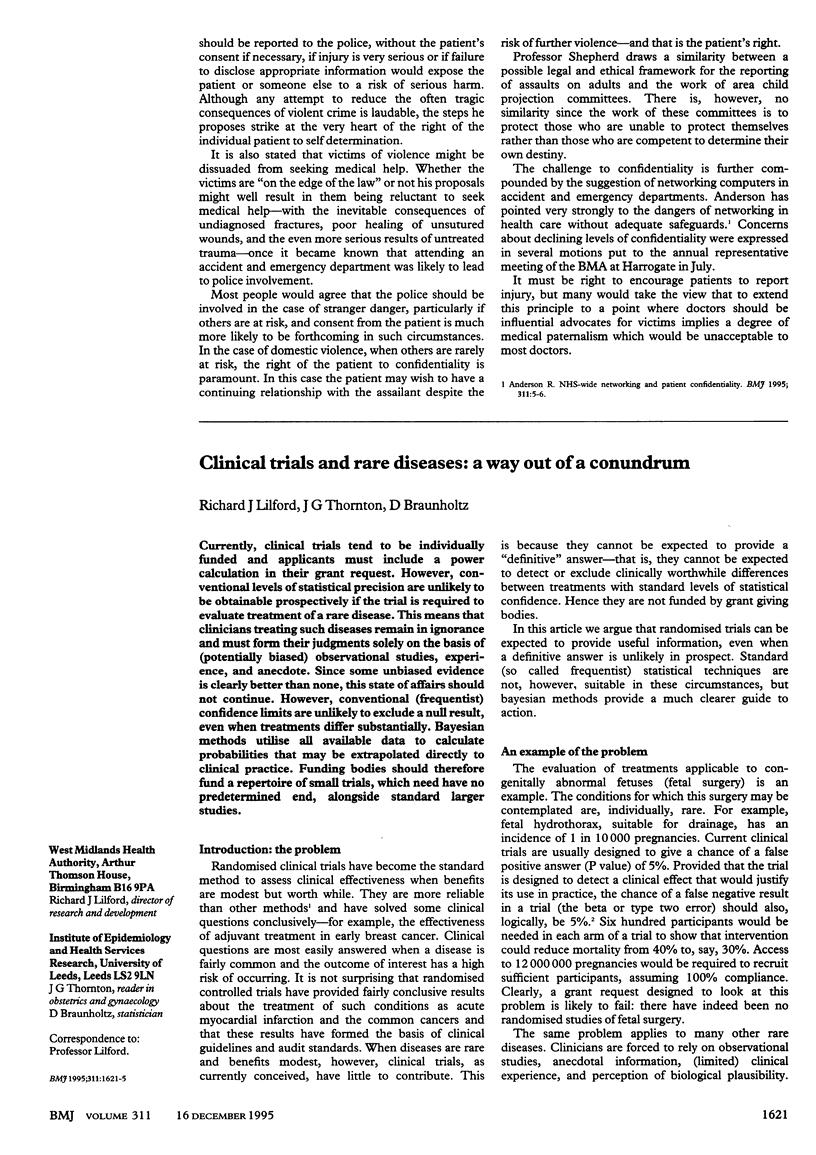
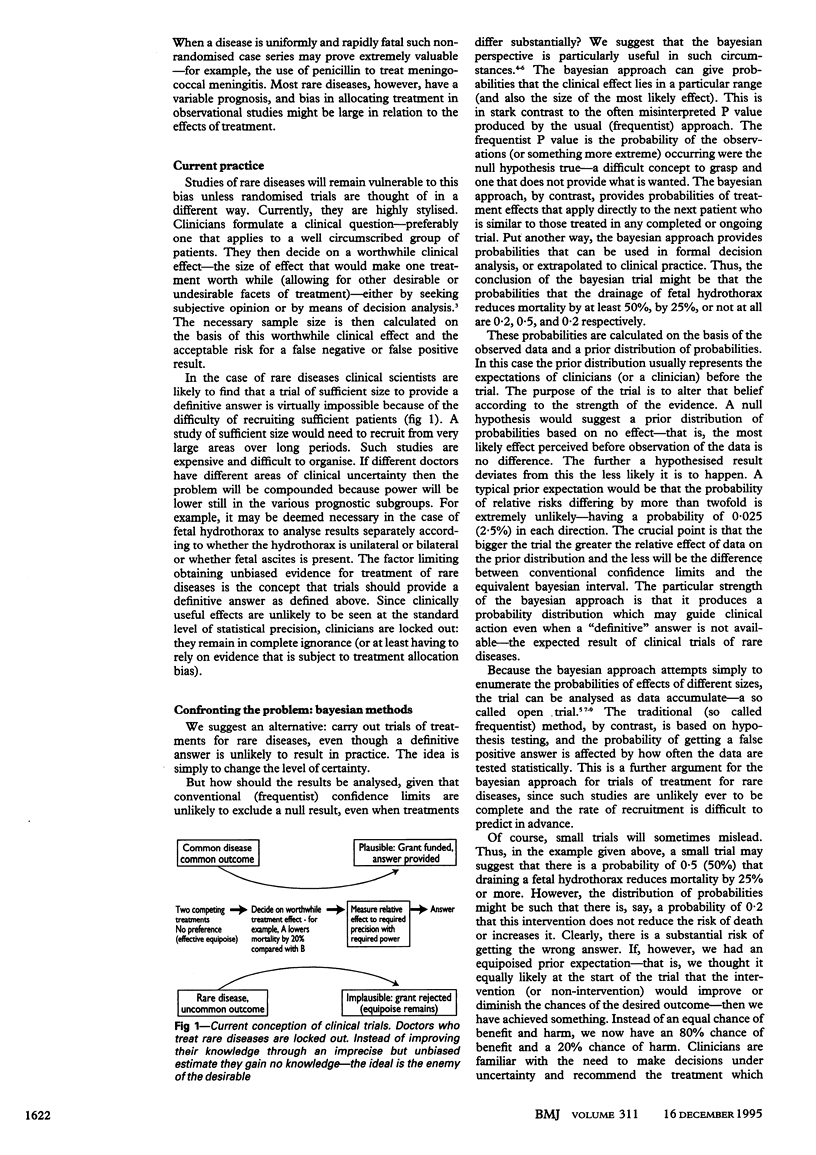
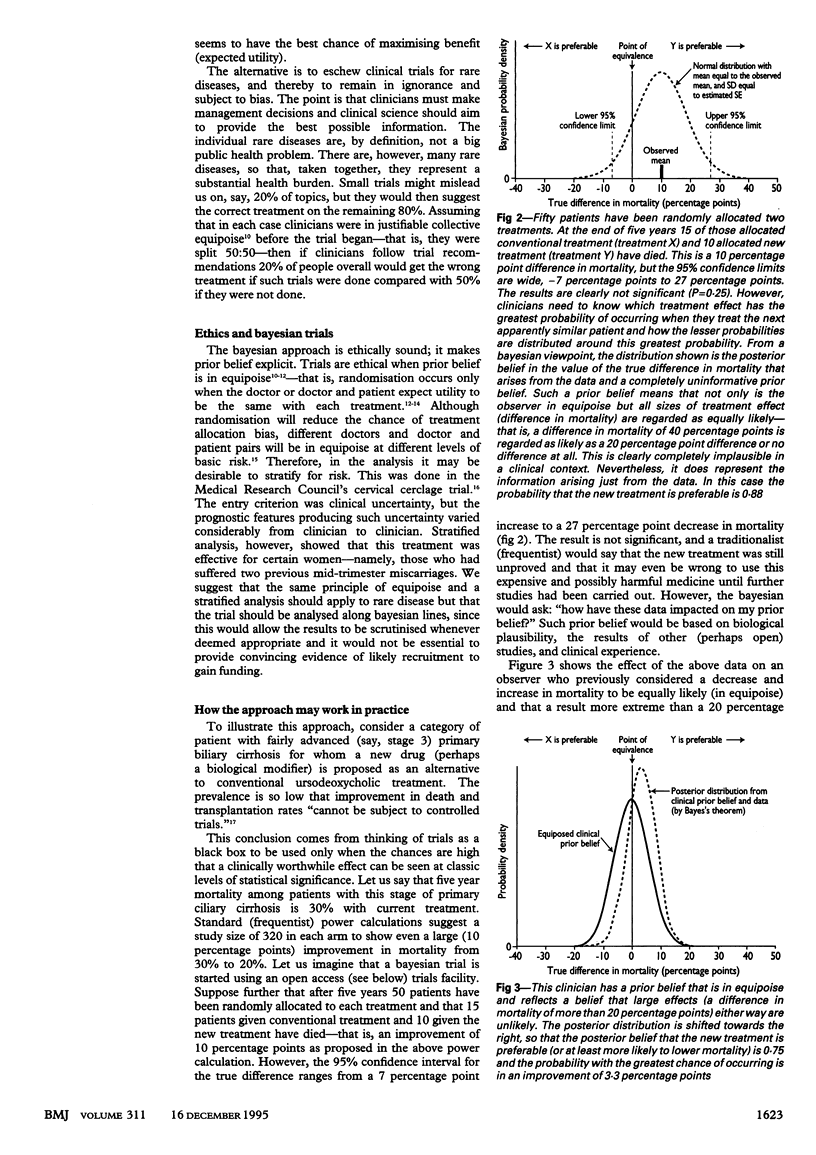
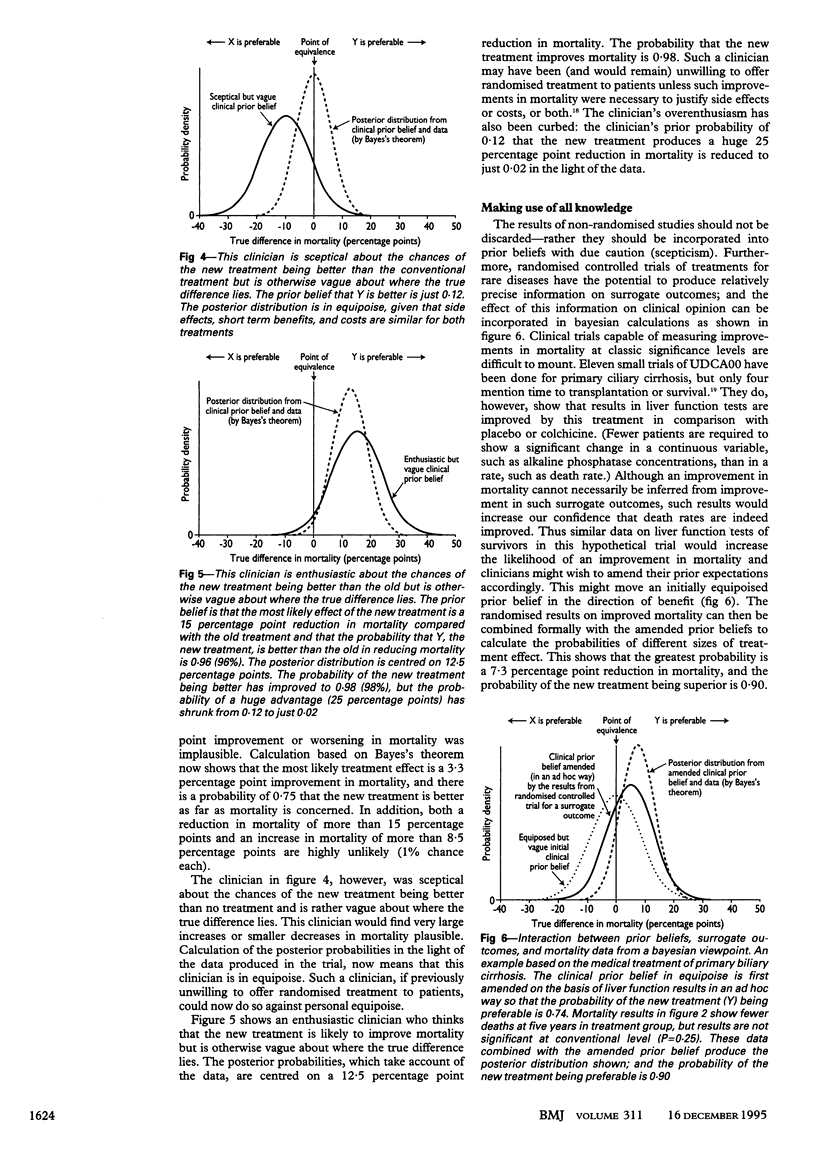
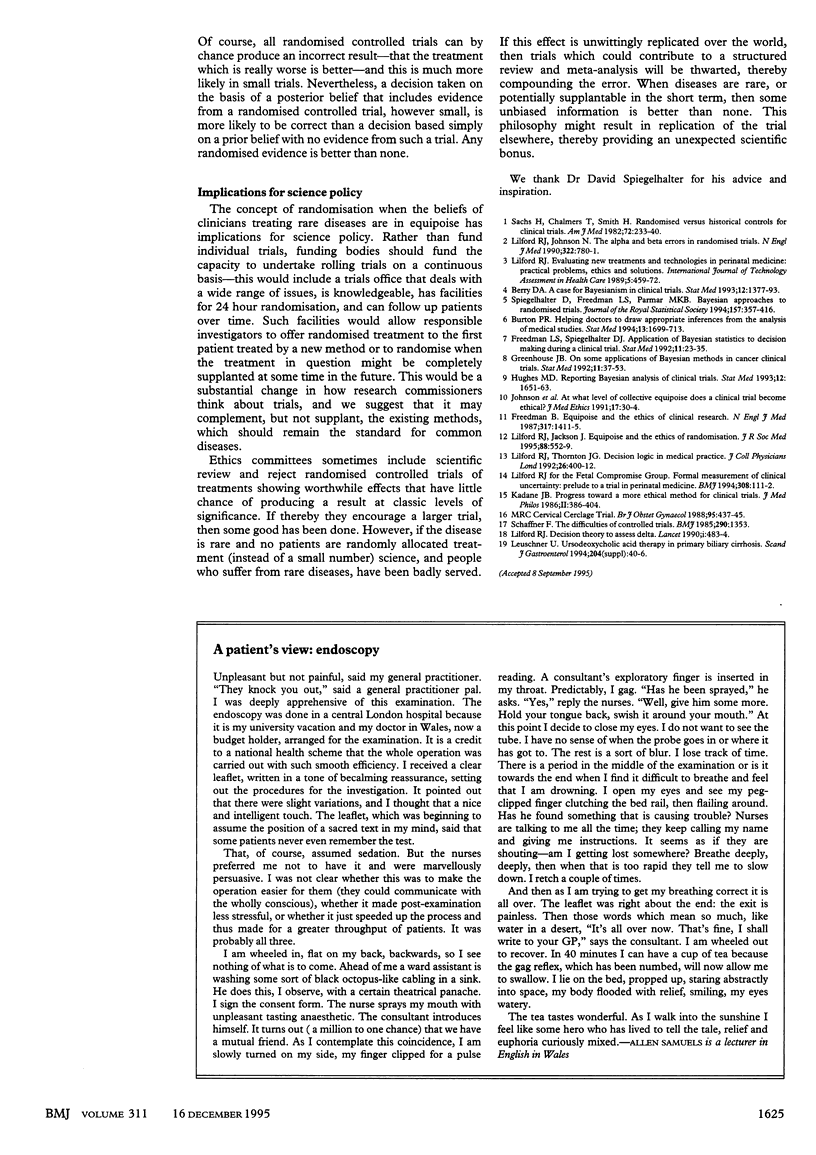
Selected References
These references are in PubMed. This may not be the complete list of references from this article.
- Berry D. A. A case for Bayesianism in clinical trials. Stat Med. 1993 Aug;12(15-16):1377–1404. doi: 10.1002/sim.4780121504. [DOI] [PubMed] [Google Scholar]
- Burton P. R. Helping doctors to draw appropriate inferences from the analysis of medical studies. Stat Med. 1994 Sep 15;13(17):1699–1713. doi: 10.1002/sim.4780131702. [DOI] [PubMed] [Google Scholar]
- Freedman B. Equipoise and the ethics of clinical research. N Engl J Med. 1987 Jul 16;317(3):141–145. doi: 10.1056/NEJM198707163170304. [DOI] [PubMed] [Google Scholar]
- Freedman L. S., Spiegelhalter D. J. Application of Bayesian statistics to decision making during a clinical trial. Stat Med. 1992 Jan 15;11(1):23–35. doi: 10.1002/sim.4780110105. [DOI] [PubMed] [Google Scholar]
- Greenhouse J. B. On some applications of Bayesian methods in cancer clinical trials. Stat Med. 1992 Jan 15;11(1):37–53. doi: 10.1002/sim.4780110106. [DOI] [PubMed] [Google Scholar]
- Hughes M. D. Reporting Bayesian analyses of clinical trials. Stat Med. 1993 Sep 30;12(18):1651–1663. doi: 10.1002/sim.4780121802. [DOI] [PubMed] [Google Scholar]
- Kadane J. B. Progress toward a more ethical method for clinical trials. J Med Philos. 1986 Nov;11(4):385–404. doi: 10.1093/jmp/11.4.385. [DOI] [PubMed] [Google Scholar]
- Leuschner U. Ursodeoxycholic acid therapy in primary biliary cirrhosis. Scand J Gastroenterol Suppl. 1994;204:40–46. doi: 10.3109/00365529409103624. [DOI] [PubMed] [Google Scholar]
- Lilford R. J. Evaluating new treatments and diagnostic technologies in obstetrics. Practical problems, ethics, and solutions. Int J Technol Assess Health Care. 1989;5(3):459–472. doi: 10.1017/s0266462300007510. [DOI] [PubMed] [Google Scholar]
- Lilford R. J., Jackson J. Equipoise and the ethics of randomization. J R Soc Med. 1995 Oct;88(10):552–559. [PMC free article] [PubMed] [Google Scholar]
- Lilford R. J., Johnson N. The alpha and beta errors in randomized trials. N Engl J Med. 1990 Mar 15;322(11):780–781. doi: 10.1056/NEJM199003153221119. [DOI] [PubMed] [Google Scholar]
- Lilford R. J., Thornton J. D. Decision logic in medical practice. The Milroy Lecture 1992. J R Coll Physicians Lond. 1992 Oct;26(4):400–412. [PMC free article] [PubMed] [Google Scholar]
- Sacks H., Chalmers T. C., Smith H., Jr Randomized versus historical controls for clinical trials. Am J Med. 1982 Feb;72(2):233–240. doi: 10.1016/0002-9343(82)90815-4. [DOI] [PubMed] [Google Scholar]



